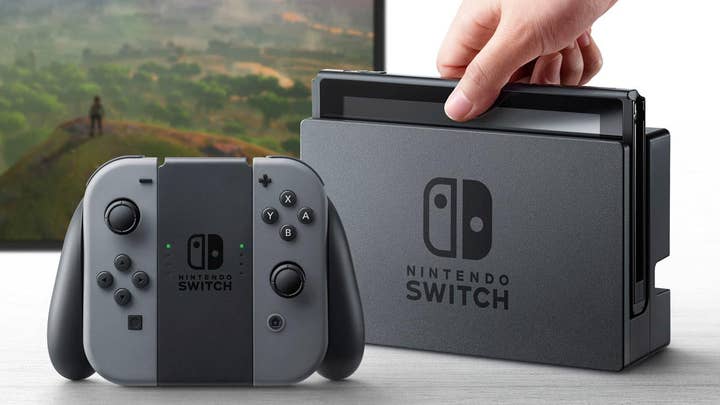Phil Harrison sees a "golden age" for games - and it's still to come
"The reach is there, the tools are there, the distribution is there," Harrison said - now all we need are the stories
Fatherhood proved to be a turning point in the way that Phil Harrison saw video games, and not simply on a personal level.
When Harrison left Sony in 2008, neither of his two sons was even born. When he returned to the console business as head of Xbox Europe in 2012, they were almost certainly too young to be conscious consumers of any kind of media. But Harrison was a conscious consumer, and growing more and more conscious with each passing year.
"Totally," Harrison said, when he talked to GamesIndustry.biz onstage at the Gamelab conference recently. "I'm very careful about the media that we consume inside the home because of having two boys, who are six and eight years old."
"Where are our equivalent of protest songs? That's a fun topic to think about. Where are the games that really delve into social issues?"
When Harrison left Sony the PlayStation 3 was only just starting to take off, the 3G version of the iPhone hadn't been launched, and there was no such thing as the App Store. The games industry was on the precipice of enormous change, which would fundamentally alter the nature of the console business.
Until that point, Harrison said, it was possible to see console content as a pyramid: core games at the top, mid-core below that, with social, casual and mass market experiences at the bottom. "That [the bottom layer] has all gone to mobile," he said, referring to the console market as it exists today. "The middle layer has kind of disappeared, and console is really only left with that more hardcore market."
For the past few years, when Harrison has watched the E3 press conferences, the absence of those two layers, and particularly the bottom one, has been keenly felt. "If you look at the last few conferences, notably from Sony and Microsoft, when you start the it's like, 'How many seconds will elapse before the first throat-stab?' Or, 'How many seconds will elapse before the first arrow goes into an eye?'"
It has left a nagging question in the back of Harrison's mind: "Is that really the view of the world we want to be portraying as an industry?"
Harrison drew a parallel between the AAA publisher games shown at an event like E3, and the prestige films released by Hollywood studios - the most visible products in their respective industries in a given year. In 1967, 40 years after the release of The Jazz Singer, the first "talking picture", the most popular films released by the major studios were The Graduate, Cool Hand Luke, In the Heat of the Night, Chitty Chitty Bang Bang, The Jungle Book and The Dirty Dozen, among others.
"You only need to look at the performance of the Nintendo Switch to get a view into what the future of mobile is going to be like"
These movies are, he said, "telling rich, deep stories [to] old, young, male, female... Now look at 40 years of video games. Are we evolving at the same rate, in terms of our rich storytelling and our rich characters? Those are some of the themes and the questions that I'm interested in exploring as an investor, and that I think the industry should be asking itself."
When every mobile device, PC and console has been taken into account, the audience for game content can now be "measured in the billions", with unparalleled geographical diversity. "I think we have a responsibility to use that power of audience for good," he said. "Where are our equivalent of protest songs? That's a fun topic to think about. Where are the games that really delve into social issues?"
In truth, there are games that could be compared to a protest song or a film exploring difficult social issues, but they are found in the industry's vibrant independent scene - as opposed to, say, Bob Dylan or Guess Who's Coming to Dinner, which were both prestige products represented by the equivalent of a major publisher in the era to which Harrison referred.
Playlink aside - which Harrison found fascinating despite it being announced offstage at E3 - Sony and Microsoft are now catering to a narrower audience than during the bulk of his years working in the console business. The advent of mid-cycle upgrades in the form of the PS4 Pro and the Xbox One X are significant of a shift, he said, but one further towards that more focused strategy.
"We've got to the point where the reach is there, the tools are there, the distribution is there, the ability to stand up an online service is there"
"Up to about PlayStation 2 the model was to keep the platform stable, but reduce the price of the hardware, augmented by some broader software offerings, therefore enhancing the market for everybody," he said. "Now we're seeing the price-point staying the same but the performance going up. It's a very different model; the price of entry is still high, and the content is increasingly at the top of that pyramid."
Both Sony and Microsoft, he pointed out, are serving that market with consummate skill, handily defying predictions that consoles would soon be dead, which were everywhere when the market for mobile and tablet devices started to boom in 2011 and 2012. "I think that both companies have done a very good job, in light of the market dynamic."
That "market dynamic" is the enormous growth, in terms of both player numbers and diversity, driven by mobile over the last five to ten years. And when asked where the next five years of growth will come from, Harrison responded without hesitation.

"Mobile. The ubiquity of the device, the democratisation of development tools, the ability to stand up a game in days and not months or years; that is going to drive content," he said.
"Obviously, discovery is an issue. There's too much content to just release it and hope people will find it... but that's always been the issue. It's just that, in the past, we didn't call it discovery; we called it marketing and PR. I think there's been an assumption within that development community that marketing just happens, and now that they're doing it themselves they've realised that it's a challenge.
"What happens when you have very believable words, very believable graphics, very sophisticated AI, what happens when those things co-exist?"
"But to answer the specific question of where the macro-growth is going to come from, it's going to be mobile for the foreseeable future."
Harrison suggested a future in which the use cases for mobile and console would converge - "you only need to look at the performance of the Nintendo Switch to get a view into what the future of mobile is going to be like" - but in terms of offering a greater diversity of experiences to satisfy gaming's exponentially more diverse audience, the role that console games will play is far from assured. Harrison stated that we're approaching a "golden age" of creativity that would fill the gaps he observed in his comparison to cinema, but it will arise from the kind of values and breakthroughs that have powered mobile.
"A golden age of democratisation of platforms, democratisation of technology to make content," he said. "When I started out, 80% of your development budget would be writing your 3D engine, and you'd have to throw that way every time you make a new game. It'd almost be like a filmmaker throwing away the Panavision camera and reinventing another one each time they went to make a film.
"We've got to the point where the reach is there, the tools are there, the distribution is there, the ability to stand up an online service is there. And we can now start thinking about what happens when you have very believable worlds, very believable graphics, very sophisticated AI, what happens when those things co-exist? That's a very interesting future."
Harrison made one more comparison, this time with the huge changes that have happened in television over the last decade or more. New technology gave rise to more open and far less rigid platforms like YouTube and Netflix, which have encouraged formal experimentation and attracted the most creative minds to the medium. The result has been a widely accepted golden age of TV storytelling.
"I hope that the same tipping effect will happen with the golden age of games I just talked about," he said. "Let's hope that we can engender the next generation of writers and creators to think about games in that way."








